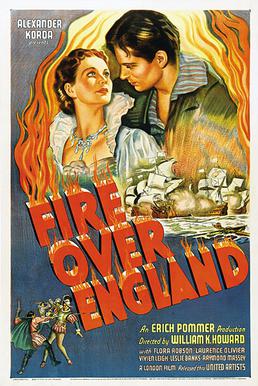Search This Blog
Thursday, July 31, 2014
Histoires Extraordinaires (aka Spirits of The Dead) (1968)
Wednesday, July 30, 2014
Moon Over Miami (1941)
Velvet Goldmine (1998)
Tuesday, July 29, 2014
Cat And Mouse (aka Mousey) (1974)
Salome (1923)
Amanti D'Oltretomba (aka Nightmare Castle) (1965)
Monday, July 28, 2014
The Moon Spinners (1964)
Sunday, July 27, 2014
A Most Wanted Man (2014)
The Bride Wore Red (1937)
In an experiment to prove that there's no real difference between the aristocracy and the common folk, a Count (George Zucco) sends a down on her luck cabaret singer (Joan Crawford) to a plush Alps resort and pass herself off as a wealthy society woman for two weeks. Once there, she plots to snag herself a rich husband (Robert Young) though her heart is susceptible to the charms of a local postman (Franchot Tone). Based on a play by Ferenc Molnar (LILIOM), this was considered one of the mediocre films that soured MGM on Crawford. So it was a surprise to discover how charming it was. Though it lacks the feminist subtext that the director Dorothy Arzner brought to films like DANCE GIRL DANCE and CHRISTOPHER STRONG, it's a polished piece of a fairy tale romcom with Crawford at her most appealing. A minor irritant is Lynne Carver (though no fault of the actress) as Young's all forgiving doormat fiancee which is an unfortunate product of the time. The trite underscore is by Franz Waxman. With Billie Burke, Reginald Owen and Mary Philips (LEAVE HER TO HEAVEN).
The Long Good Friday (1980)
A crude British gangster (Bob Hoskins) has ambitions of legitimizing his organization by investing in property that will home the future Olympic games. To this end, he seeks the support of an American syndicate whose representative (Eddie Constantine, ALPHAVILLE) has arrived in London. However, a series of killings and bombings of the gangster's cohorts threaten to derail the deal and he is determined to find the culprits. But he doesn't realize just how over his head he is. Directed by John MacKenzie (THE FOURTH PROTOCOL), this is a terrific and nasty portrait of a street thug who rose from the gutter to a crime kingpin yet doesn't seem to realize that he can't control everything around him and that his violent tactics often make matters worse. This was Hoskins' breakthrough film and he gives a superb performance. He's both frightening and attractive at the same time, you can see why a looker like Helen Mirren (as his mistress) would be drawn to him. It's a tough little gangster film that spares us nothing, no glamorizing the life here. Really first rate stuff! I could have done without Francis Monkman's overcooked score though. With Derek Thompson, Dave King, Bryan Marshall, Paul Freeman and in his feature film debut, Pierce Brosnan.
Saturday, July 26, 2014
Kansas City Bomber (1972)
A single mother (Raquel Welch) turns to skating in the roller derby as a way of supporting her two children who live with her mother (Martine Bartlett) while she travels with the Kansas City team. Things get complicated when she is traded to Portland, Oregon where's she's seen as a threat by the "star" (Helena Kallianiotes, FIVE EASY PIECES) of the Portland team. It doesn't help that the team's owner (Kevin McCarthy) thinks he owns her outside the skating rink too. Directed by Jerrold Freedman. While the film can't seem to decide whether it's an out and out exploitation film or a serious study of a woman trying to find her place in a world that exploits her both professionally and personally (something Welch knows something about), it's a tight little film with a surprisingly effective performance by Welch. Two supporting performances stand out: Kallianiotes who wears her simmering rage on her sleeve and Norman Alden as a sensitive big gorilla of guy who's not too bright but exploited also. The skating sequences seem authentic though it's clear Welch is using a double for the more physical portions. There's a nice jazz infused score by Don Ellis (THE FRENCH CONNECTION). With Jeanne Cooper, Cornelia Sharpe and 10 year old Jodie Foster as Welch's daughter.
Friday, July 25, 2014
Nikutai No Mon (aka Gate Of Flesh) (1964)
Thursday, July 24, 2014
Right Cross (1950)
Despite being in love with the WASP daughter (June Allyson) of his fight promoter (Lionel Barrymore), a Mexican-American boxer (Ricardo Montalban) feels paranoid that "gringos" have it out for him. When his right hand becomes damaged and his fighting days seem numbered, he plots to get out of his contract with his promoter and sign with another promoter (Barry Kelley) who can do more for him financially. Directed by John Sturges (BAD DAY AT BLACK ROCK), this is a well done programmer with three appealing leads (Dick Powell as a sports reporter is the third) and a solid screenplay by Charles Schnee. The race angle is handled well without the Krameresque heavy handedness. Allyson may be top billed but the film really belongs to Powell and Montalban who establish a believable bond of friendship, a genuine "bromance". The film's big boxing sequence toward the end is excellent though this is coming from someone who is not a fan of the sport. There's no real underscore to speak of but David Raksin composed a corker of a main title. With Kenneth Tobey, Larry Keating and in a bit part as a model Powell tries to pick up ... Marilyn Monroe.
Wednesday, July 23, 2014
The Shanghai Gesture (1941)
A massive gambling house in Shanghai run by the notorious Mother Gin Sling (Ona Munson, Belle Watling in GONE WITH THE WIND) attracts a mix from all walks of life: society types, government officials down to con men and prostitutes. When a rich spoiled playgirl (Gene Tierney) and a down on her luck chorus girl (Phyllis Brooks) enter the establishment, they will both provide Mother Gin Sling with the means for revenge against the man (Walter Huston) who did her wrong. This is one insane movie! Directed by Josef von Sternberg (though the film has no connection to his SHANGHAI EXPRESS), one has to wonder what hallucinogens he was taking when he made it. Considering the censorship restrictions of the time eviscerated the source material, it's still amazing what the film gets away with. In the original play, Mother Gin Sling is Mother Goddam and she runs a brothel rather than a gambling establishment. Is it a "good" film? No ... but it's much more enjoyable and fun than so many "good" films that we know we are supposed to like. Boris Leven's Oscar nominated set, a circular multi-leveled casino with a huge chandelier viewing the gambling tables on the bottom floor, is pretty awesome. A surreal experience that should be seen at least once. With Victor Mature, Eric Blore, Albert Basserman, Mike Mazurki and Maria Ouspenskaya whose role seems to have been cut, she has no lines.
June Moon (1974)
Tuesday, July 22, 2014
The Hanging Tree (1959)
The Postman Always Rings Twice (1981)
A transient (Jack Nicholson) hitchhiking his way to Los Angeles stops at a small roadside cafe and gas station run by an older Greek man (John Colicos) who offers him a job as a car mechanic. He's reluctant to accept until he sets his eyes on the Greek's sexy young wife (Jessica Lange). After they become lovers, it's only a matter of time before they conspire to kill him. The second American film version (it's also been made in France, Germany and Italy) of the James M. Cain novel, this is more accurate to Cain's novel than the 1946 Lana Turner/John Garfield MGM film. Restricted by the censorship dictates of the era, the Tay Garnett film could only suggest the sexual heat the two protagonists had for each other. I'm not trying to denigrate the 1946 film which is excellent and one of the important noir films of the 1940s, but the sexual aspect is key to the Cain novel. Handsomely shot by the great Bergman collaborater Sven Nykvist, the period detail is exquisite. I've never been a fan of David Mamet either as a playwright or screenwriter and his adaptation is troublesome. He seems to want to gut Cain's style which, despite it being cleaned up, the 1946 film managed to suggest. But if the 1976 KING KONG suggested that Lange was a star in the making, this film fulfills that promise. Disheveled and tense, Lange lets us see this woman's desperation and longing to break out. The film editor is Graeme Clifford who would direct Lange to an Oscar nomination in FRANCES the next year. Gracefully directed (perhaps too graceful) by Bob Rafelson with a beauty of a score by Michael Small. With Anjelica Huston, Michael Lerner, Christopher Lloyd and John P. Ryan.
Monday, July 21, 2014
Cash McCall (1960)
Sunday, July 20, 2014
Vertigo (1958)
Dawn Of The Planet Of The Apes (2014)
Set in San Francisco, a "simian" virus (though it was created by man) has wiped out most of the human population and the apes have retreated to the forests. The ape leader Caesar (Andy Serkis), a victim of unethical laboratory experimentation, distrusts the humans. But when a small group of humans invade their area, it eventually precipitates a battle of power over who will dominate. Superior to its predecessor RISE OF THE PLANET OF THE APES, director Matt Reeves (CLOVERFIELD) has created a thrilling and provocative action piece that is a perfect example of the intelligent summer blockbuster. It builds such good will that one can forgive it running out of steam by the time it reaches its conclusion. The film's biggest flaw is that, unlike the engrossing ape characters, it can't do much with its human characters. A duller more insipid bunch you won't find anywhere and they bog the movie down whenever they're on screen which is a lot. But Andy Serkis is terrific here, a really strong physical as well as emotional performance. Of course, the film is laden with CGI but it's well done CGI or as well as can be expected making something unreal look real. It's one overcast film though in the visual sense, browns and grays dominate and I couldn't help but wish for a splash of yellow or red! With Jason Clarke, Keri Russell, Toby Kebbell as the film's simian villain and Gary Oldman as his human counterpart.
Saturday, July 19, 2014
Cult Of The Cobra (1955)
In 1945, six American soldiers in Asia (possibly India) view a forbidden snake ceremony where a woman morphs into a cobra. When one of them attempts to take a photo, chaos ensues and the high priest vows the men will all die. One does die there from a snake bite but when they get home to the states, other deaths imply the curse is upon them! I had a good time with this kitschy potboiler. You know exactly what it is going in and I wasn't disappointed. How can you not like a movie with a woman dancing in a cobra outfit that looks like it came right out of season one of AMERICAN HORROR STORY. I couldn't help but grin how when anyone mentioned snakes or curses, ominous music would play and the cameraman (the great Russell Metty) would highlight the area around Faith Domergue's eyes. As a horror film, it's not very scary unless rubber cobras frighten you. Actually, I developed a sympathy for Domergue's snake girl and her mission to wipe out the G.I.s. After all, they were told not to make their presence known during the ceremony. It's not the kind of film where the acting matters much but Marshall Thompson delivers a little more than the role requires so he was the only character I didn't want to see become a victim. Directed by Francis D. Lyon. With Richard Long, David Janssen, Jack Kelly and Kathleen Hughes who I was hoping would get bit!
Friday, July 18, 2014
Smultronstallet (aka Wild Strawberries) (1957)
Thursday, July 17, 2014
Kona Coast (1968)
Good Sam (1948)
Wednesday, July 16, 2014
The Innocent (1993)
Tuesday, July 15, 2014
WarGames (1983)
Cry Danger (1951)
Released after five years in prison for a crime he didn't commit, a man (Dick Powell) sets out to find those actually responsible for the crime. The directorial debut of Robert Parrish (IN THE FRENCH STYLE), this is a nifty little film noir rich with tension and anticipation. Powell is almost always at his hard boiled best in these noirs (MURDER MY SWEET, PITFALL) and he gets good support from the rest of the cast particularly Richard Erdman as an alcoholic war vet with a wooden leg. It's tight, fast paced and economical and if we're not entirely surprised when the big revelation comes, it's still a captivating slice of entertainment. Shot entirely on the streets of Los Angeles and not the most attractive parts either, Oscar winner Joseph F. Biroc's (TOWERING INFERNO) crisp black and white cinematography gives the film legitimacy. With Rhonda Fleming as Powell's ex-flame, William Conrad, Regis Toomey (as a detective, what else?), Kathleen Freeman and a showy performance by Jean Porter as a pickpocketing tart.
High Time (1960)
Against the wishes of his grown children, a self made millionaire (Bing Crosby) who owns a chain of restaurants decides to get the college education he never had. At first, he feels a little out of place but with the help of his young dormitory room mates, he soon fits in. Today, adults returning to colleges and universities to get or complete an education is pretty commonplace. But in 1960, it was still an unusual concept and in this lightweight Blake Edwards (THE PINK PANTHER) concoction, it's played for laughs. It's an amiable if mindless entertainment without much to recommend it unless you're a Bing Crosby fan which I'm not. The rest of the cast don't have much to do including Tuesday Weld whose screen time is minimal (even Fabian gets billed above her!). Nicole Maurey (DIARY OF A COUNTRY PRIEST) in a role turned down by Simone Signoret provides the laid back love interest as the French teacher. The score is by Edwards' frequent collaborator Henry Mancini but the musical highlight is the Oscar nominated song The Second Time Around (sung by Crosby) which became a frequently performed standard. Also in the cast: Richard Beymer, Gavin MacLeod, Yvonne Craig, Patrick Adiarte, Nina Shipman and Douglass Dumbrille.
Monday, July 14, 2014
Sylvia Scarlett (1935)
Sunday, July 13, 2014
Le Quai Des Brumes (aka Port Of Shadows) (1938)
La Venus A La Fourrure (aka Venus In Fur) (2013)
A theater director (Mathieu Amalric, THE DIVING BELL AND THE BUTTERFLY) is frustrated that he can't find the right actress for his new play, an adaptation of von Sacher-Masoch's 1870 S&M novel VENUS IN FUR. In walks in a rag doll of a ditzy actress (Emmanuelle Seigner) late for her audition and it's not long before the cat and mouse game begins and the tables turn. As he proved with DEATH AND THE MAIDEN and CARNAGE, Roman Polanski knows how to do filmed theater the right way! Based on the 2010 David Ives play, Polanski takes the thin material (the writing isn't very good, not having seen the play I can only assume it was a bore) and injects a mischievous playfulness to the proceedings. One can't take the play's underdeveloped ideas too seriously (and I don't think Polanski did either) but as a sly battle of the sexes, there's much fun to be had. Amalric looks so much like a younger Polanski that sometimes one forgets that it isn't Polanski! Seigner is marvelous here, teasing the audience as much as she's teasing Amalric and seducing both him and us all the while. The nicely subtle score is by Alexandre Desplat.
Saturday, July 12, 2014
One Touch Of Venus (1955)
A recently uncovered statue of the Roman goddess Venus (Janet Blair, BURN WITCH BURN) arrives at a New York museum after being purchased by a millionaire (George Gaynes). But when a barber (Russell Nype) places a ring intended for his fiancee (Mildred Trares), the statue comes to life and causes havoc. The 1948 film version with Ava Gardner gutted all the charming Kurt Weill and Ogden Nash songs save about three songs including the show's breakout hit, Speak Low. This production restores all the cut songs and is more faithful to the original 1943 Broadway show. As a Venus, Janet Blair is no Ava Gardner but she sings (Gardner was dubbed) and dances and gives a delightful performance. S.J. Perelman's and Ogden Nash's book retains the wit and appeal that was misguidedly revamped for the 1948 film. As an archival record of the original stage production, this is a keeper. Directed by George Schaefer. With Laurel Shelby, Iggie Wolfington and Louis Nye.
Breakfast Of Champions (1999)
How Awful About Allan (1970)
A young man (Anthony Perkins) returns home from a hospital following the death of his father (Kent Smith) in a fire which also disfigured his sister's (Julie Harris) face. The trauma causes a psychosomatic blindness in the young man. But when a mysterious college student rents a room in the house, he becomes paranoid that the boarder wants to do him harm. Based on the novel by Henry Farrell (WHATEVER HAPPENED TO BABY JANE?), this is a neatly done thriller if rather obvious. Since we only see the student through the protagonist's blurry vision, we know the film makers don't want us to see the boarder for a reason. The director Curtis Harrington specialized in these horror melodramas like WHAT'S THE MATTER WITH HELEN? and GAMES and he keeps the creepy ambience moving along nicely with solid performances by Perkins and Harris though Perkins at this point in his career could do this kinds of parts blindfolded. The weak underscore is by Laurence Rosenthal (THE MIRACLE WORKER). With Joan Hackett and Robert H. Harris.
Friday, July 11, 2014
Sometimes A Great Notion (1971)
A group of Oregon loggers go on strike demanding the same pay for shorter hours. They are backed up by their union. But the independent Stamper family lead by its cantankerous patriarch (Henry Fonda) and his eldest son (Paul Newman, who also directed) refuse to honor the strike and continue to supply the mill owners with logs. Based on the Ken Kesey (ONE FLEW OVER THE CUCKOO'S NEST) novel, the film is a paean to the rugged individualist. But the Stamper family are a rather arrogant and unlikable bunch so its hard to drum up much empathy for the tragedies and hardships that befall them. I suppose it's to the film's credit that it doesn't attempt to soften them up in order to make them more sympathetic but when the eldest son's wife (Lee Remick) finally decides she's had enough and leaves him, you totally understand why. Fonda seems rather miscast as a rugged womanizing right wing lumberjack (John Wayne would have been perfect) but Newman manages overcome his miscasting with an effective performance. The scene stealer in the movie is Richard Jaeckel who has one of those once in a lifetime roles (like Ben Johnson's Sam in THE LAST PICTURE SHOW) that veteran actors who have been toiling in the business for years that finally gets them recognition. He earned a well deserved Oscar nomination but lost to Johnson for TLPS. The often majestic cinematography by Richard Moore (THE REIVERS) takes full advantage of the ripe Oregon landscapes. I'm less enthusiastic over Henry Mancini's ill advised country and western underscore, it's Oregon not Tennessee or Texas. With Michael Sarrazin, Linda Lawson and Joe Maross.
Darling (1965)
As she's being interviewed for a woman's magazine about her life, a woman (Julie Christie in her Oscar winning performance) chronicles her "glamorous" life from model to Princess and is not above distorting the facts to favor her. For the film's first hour, the film does a compelling job of documenting a shallow and aimless soul, a "celebrity" without any actual gift or talent. Remarkably, Christie does the near impossible, she makes an empty headed waif interesting. It's the dark side of Holly Golightly. Part of it is her performance and part of it is her, she's the real thing and her screen presence is potent. But as magnetic as she is, even she can't sustain the superficial character for an entire film. The film is populated with superficial characters and even those that aren't supposed to be, like Dirk Bogarde, come across as empty. So after awhile we realize no one is going to change or have an epiphany and the movie will end with everyone as trifling as they were at the beginning. Edgy in its day, some of the film's view of "decadence" today looks rather silly or quaint. Still, it was one of the seminal films of the 1960s. Directed by John Schlesinger, who himself was critical of the film in his later years. With Laurence Harvey, Jose Luis De Vilallonga and Roland Curram.
Thursday, July 10, 2014
Monsieur Beaucaire (1946)
King Louis XV of France (Reginald Owen) orders a member of his court, a Duke (Patric Knowles) who is the King's rival for the hand of Madame Pompadour (Hillary Brooke), to marry a Spanish Princess (Marjorie Reynolds) thus not only getting rid of him but the royal marriage between France and Spain will avoid a war. However, on the way to Spain the Duke switches places with his barber (Bob Hope) who must masquerade as the Duke at the Spanish court. Very loosely based on the 1900 novel by Booth Tarkington (MAGNIFICENT AMBERSONS) which was previously made as a swashbuckling silent with Rudolph Valentino, this is broad comedy with Hope dueling with wisecracks and quips rather than swords. He's in top form here whether setting up trysts with ladies of the court or trying to avoid a poisonous glass of wine during a toast to the King. The production values are impressive, so much so that it's a pity that the film was shot in B&W rather than Technicolor. It's silly but the script is good and Hope takes full advantage of the material. Directed by George Marshall. With Joan Caulfield, Joseph Schildkraut, Cecil Kellaway and Constance Collier.
Monday, July 7, 2014
Grand Prix (1966)
During the Formula One racing season, four drivers are determined to become the world champion by the season's end. An American (James Garner), a Frenchman (Yves Montand), a Brit (Brian Bedford) and an Italian (Antonio Sabato). The film follows their wins and their setbacks, both professional and personal. Possible documentaries aside, this really is the greatest auto racing movie ever made. Oh sure, the film is littered with stock characters but the actors are good enough (it's amazing what Eva Marie Saint does with a nothing part) to compensate. The racing footage is stunning! The director John Frankenheimer puts us right into the seats and we can feel the rush of adrenaline while racing at a 100 plus miles per hour. The thrill of racing without actually having to do it! How he got some of that footage I don't know but no other racing movie before or since has equaled it. Lionel Lindon (THE MANCHURIAN CANDIDATE) gets the bravos for the awesome cinematography and giving credit where credit is due, the movie's film editors (Henry Berman, Stu Linder, Frank Santillo) did an awesome job. If it were made today, no doubt it would be filmed in 3D. With Toshiro Mifune, Jessica Walter, Genevieve Page, Francoise Hardy, Claude Dauphin, Adolfo Celi and Rachel Kempson.
Portrait Of Jennie (1948)
A struggling painter (Joseph Cotten) meets a precocious child (Jennifer Jones) in the park and becomes inspired to paint her. Curiously, each time he meets her, whether it's weeks or months, she becomes noticeably older by several years. This sort of loopy mystical fantasy material practically begs to be laughed at yet somehow as nonsensical as the whole thing is, it holds your interest and you don't laugh. Which doesn't mean it's any good, just that its film makers (producer David O. Selznick, director William Dieterle) are skilled enough to make us take the whole enterprise as seriously as intended (more or less). The film's prologue sets us up with with psychobabble about infinity and truth and quotes from Euripides and Keats before plunging into the other worldly romance. Surprisingly, Jones is relatively convincing in each aspect of her aging though Cotten appears as dour in the romantic sequences as he was at the film's beginning. Curiously, for the film's big finish, a raging storm, the film goes from B&W to green then red tints. Dimitri Tiomkin adapts the music of Claude Debussy for his score while Bernard Herrmann wrote the melody for Jones's haunting song. Based on the novel by Robert Nathan. With Ethel Barrymore, Lillian Gish, David Wayne, Anne Francis, Nancy Olson, Florence Bates, Albert Sharpe and Cecil Kellaway.
Sunday, July 6, 2014
Fire Maidens From Outer Space (1956)
Scientists discover a 13th moon belonging to the planet Jupiter which appears to have the same atmospheric qualities as Earth. An expedition is sent (utilizing only 3 days travel time!) to explore the moon. Imagine their surprise when they find the moon populated by sexy babes! One of the most notorious (infamous?) examples of bad sci-fi films, the ineptitude on every level earns it a special place in the Bad Movies Hall Of Fame. It's just not the shoddy special effects (a cardboard spaceship placed in front of a starry backdrop), everything screams out, "What were they thinking?". The "fire maidens" entertain their Earthly guests by dancing to Stranger In Paradise and later have two more dance numbers (maybe it should have been called DANCE MAIDENS FROM OUTER SPACE), the "monster" runs around with a rubber mask so ridiculous that in one scene one of the actors can barely keep a straight face. When one of the crew throws a grenade at the "monster", he seems to forget that the heroine is right beside him (she survives with nary a hair out of place). And why does the moon look suspiciously like the English countryside? If you've an affection for bad movies, this is for you. Directed by Cy Roth. With Anthony Dexter, Susan Shaw, Paul Carpenter and Jacqueline Curtis.
Snowpiercer (2013)
Du Skal Aere Din Hustru (aka Master Of The House) (1925)
A chauvinist husband (Johannes Meyer) is verbally and emotionally abusive to his wife (Astrid Holm). She leaves him but this causes a nervous breakdown and she is sent to recuperate at a country sanitarium. Meanwhile, the husband's old nanny (Mathilde Nielsen) decides to teach him a lesson. Directed by the great Carl Theodor Dreyer, this rather plodding lesson on how to treat our wives better makes for a rather arduous viewing. While I gather that this film is much admired in his own country, I can understand why its reputation outside Denmark is not as stellar. I'm hard put to connect this ho-hum dramedy to the genius who would shortly give us masterpieces like THE PASSION OF JOAN OF ARC or VAMPYR. While its intentions are honorable, Dreyer spends too much time on the rather mundane domestic scenes. We get how hard the life of a housewife is, we understand that the husband must go through this domestic ritual in order to appreciate his wife but there is a difference between showing us monotony and being monotonous. That being said, the film features a nice performance by Nielsen as spirited nanny turned feminist avenger. The transfer I saw had a dreadful tinkling piano score that I replaced with two scores, one by Alexandre Desplat and a second one by Ray Cook. With Clara Schonfeld and Karin Nellemose.
Saturday, July 5, 2014
Bob & Carol & Ted & Alice (1969)
An upper middle class Southern California couple, a documentary film maker (Robert Culp) and his wife (Natalie Wood), return from a retreat focusing on personal growth determined to engage in open and honest communication. Their best friends, an attorney (Elliott Gould) and his uptight wife (Dyan Cannon), have problems dealing with their friends' new Laissez-faire attitude. The directorial film debut of Paul Mazursky (who passed away last week), this is one of the funniest satirical comedies of the 1960s. Unlike some other popular films of the era (think EASY RIDER), B&C&T&A remains relevant. Whether it's the Esalen movement of the 1960s, Scientology, new age gurus like Deepak Chopra of good ole' Dr. Phil; we're still looking for the big fix, that someone or that philosophy that will serve as a life preserver in a topsy turvy world. We're bound to be disillusioned but that doesn't stop us from looking. But I digress. Why so many of sixties comedies don't play well today is that they resemble the sitcoms that we grew up with and have moved away from. B&C&T&A, on the other hand, presages the the looser improvisatory style of shows like SATURDAY NIGHT LIVE. Wood (looking drop dead gorgeous) and Culp are fine but it's Gould and especially Cannon (whose laugh is a gift from God) that take over the film. The once much despised Fellini-esque ending, at the time considered a "cop out", today is a thing of beauty. With Lee Bergere, Lynn Borden and Donald F. Muhich.
The Fast And The Furious (1955)
Friday, July 4, 2014
The Eagle Has Landed (1976)
Song Of The Thin Man (1947)
Le Clan Des Siciliens (aka The Sicilian Clan) (1969)
A minor Sicilian Mafia head (Jean Gabin) operates a legitimate business as a cover for his illegal activities. He helps spring a ruthless cop killer (Alain Delon) from prison because he is needed in order to rob a diamond collection worth millions. But the head of the clan finds the young man reckless and hard to control. I love a good heist thriller and this French gem courtesy of Henri Verneuil is first rate. From the detailed plotting of the heist to the various subplots involving the police detective (Lino Ventura) stalking the cop killer (when he announces at the beginning of the film that he's stopped smoking, you know he'll start again before the film ends) and an affair between the killer and one of the clan wives (Irina Demick), Verneuil's film is as precise as a tightly wound watch. Gabin is such an iconic presence that he doesn't need to do much more than just be. But being the actor that he is, he gives an expert performance showing us both the patriarch who loves his family and the cold blooded head of a clan that does what he must do. Henri Decae's exact wide screen lensing and Ennio Morricone's pulsating underscore both contribute to the film's success. With Sydney Chaplin, Amedeo Nazzari and Danielle Volle.
Thursday, July 3, 2014
Night, Mother (1986)
Wednesday, July 2, 2014
Fire Over England (1937)
Tuesday, July 1, 2014
Witness For The Prosecution (1982)
Just released from the hospital after suffering a heart attack, a famed barrister (Ralph Richardson) is advised by his doctors to not take on any strenuous cases. But when a young man (Beau Bridges) is accused of murdering an older woman (Patricia Leslie), he is sufficiently intrigued by the case to take it on. The Agatha Christie short story WITNESS FOR THE PROSECUTION was published in 1925 in Great Britain and 1948 in the U.S. and adapted by her into the hit play in 1953 (in which Christie changed the ending). The 1957 film version of that play directed by Billy Wilder was both a critically admired film and a box office hit. I'll say right up front that although I'm a huge Christie fan, I've never cared for the 1957 film. Principally because of its two leads, Tyrone Power and especially Marlene Dietrich whose limitations as an actress curtails much of the film's "surprise". Here, with the marvelous Diana Rigg in the role, we get a real actress in the part and the difference is amazing. It's still a rather stage bound talky courtroom thriller (though more faithful to the Christie play than Wilder's film) but there's no way of getting around that without diluting the mystery. Deborah Kerr is always a welcome presence but she's rather wasted here in a minor role as Richardson's nurse. Directed by Alan Gibson (A WOMAN CALLED GOLDA). With Wendy Hiller, Donald Pleasence and Michael Gough.
Subscribe to:
Posts (Atom)
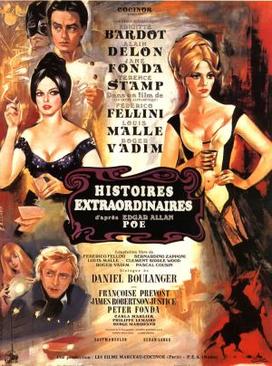

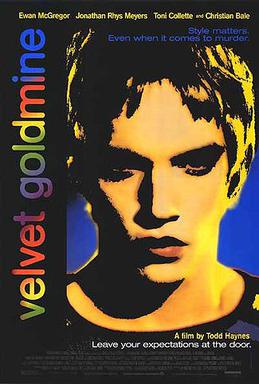


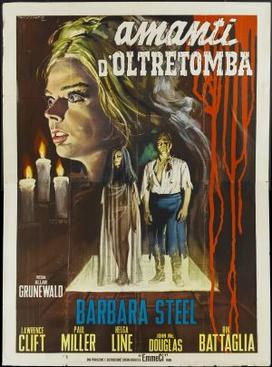
.jpg)

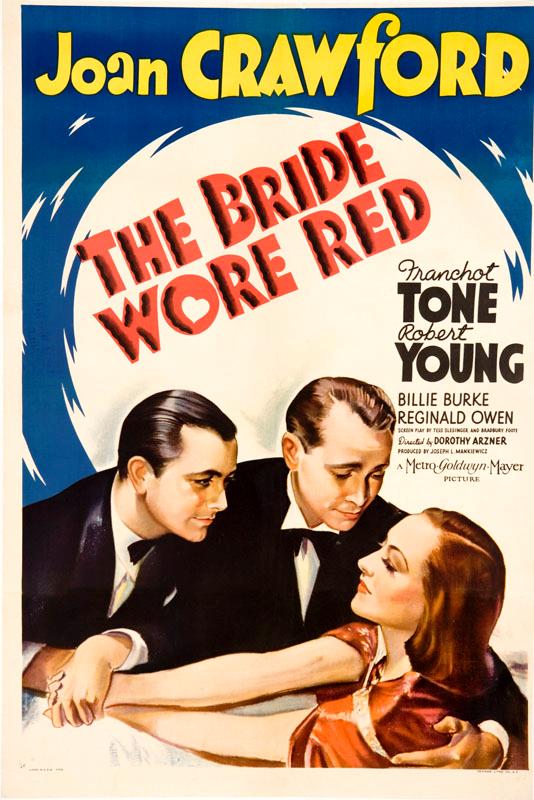
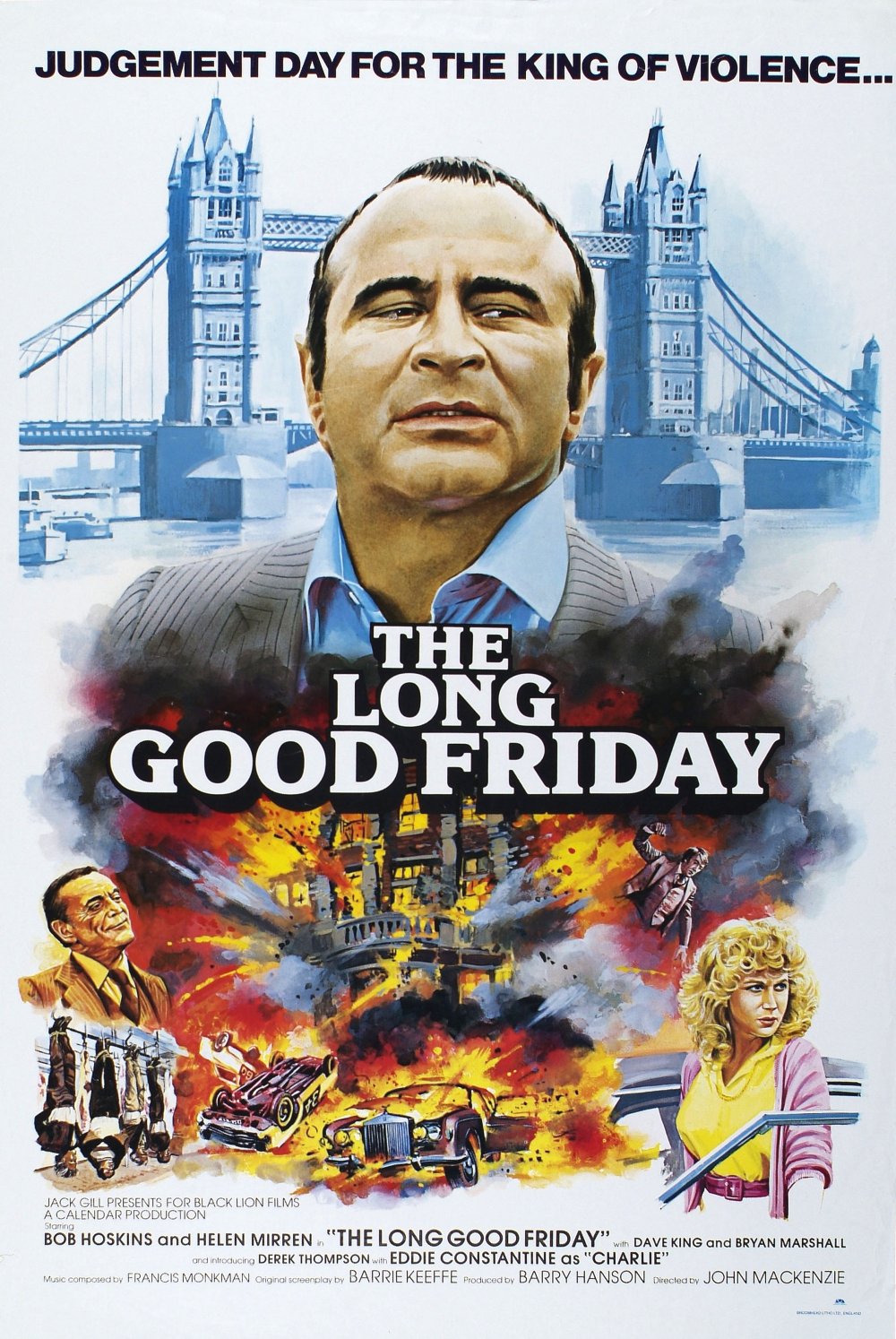
.JPG)
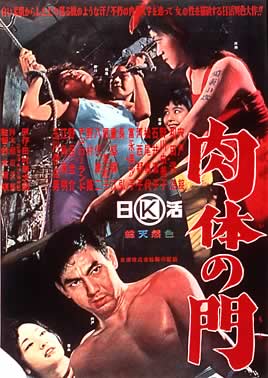







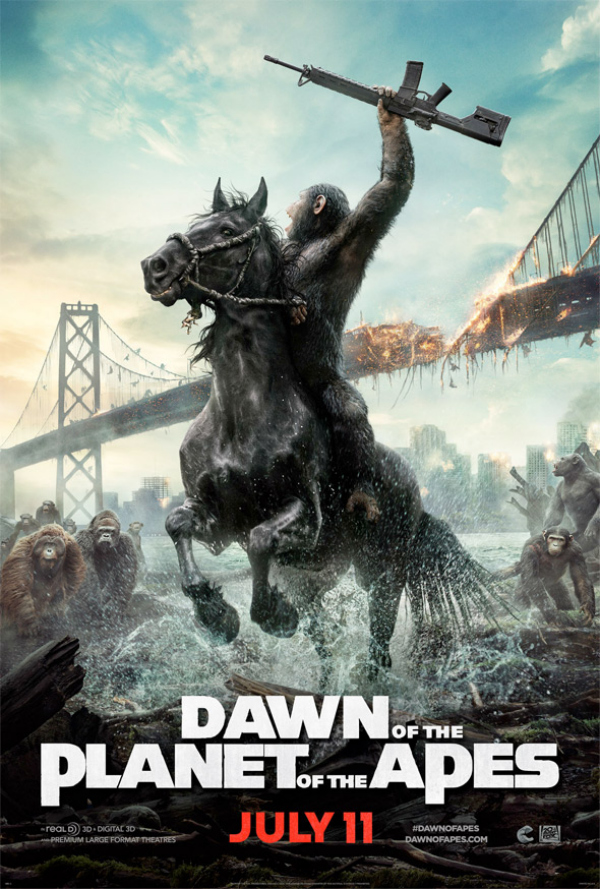

.JPG)


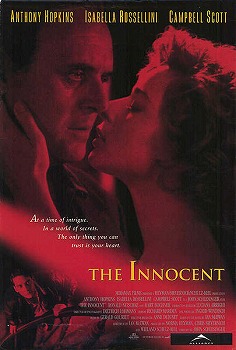


.JPG)
.jpg)



.jpg)
.JPG)


.JPG)
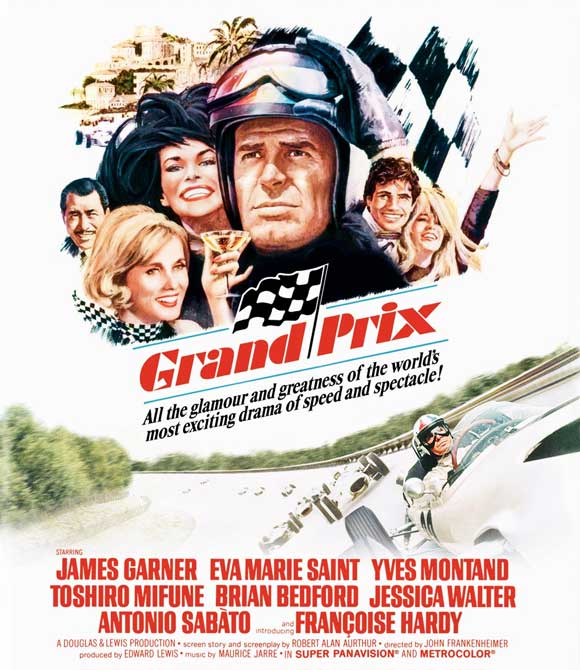


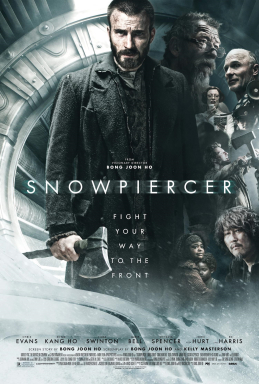



.JPG)


